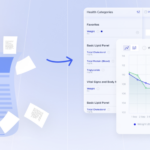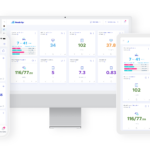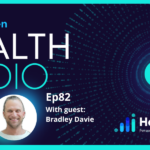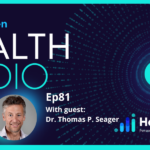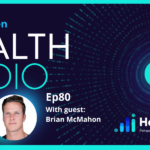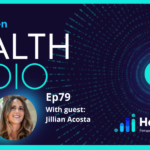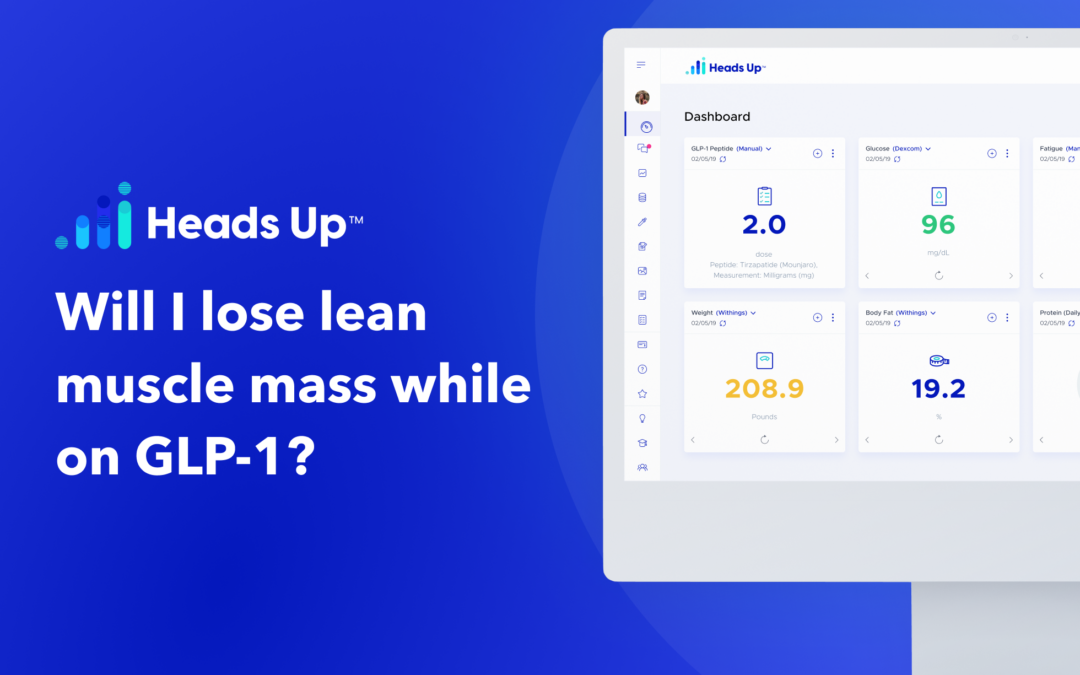
by Heads Up Health | Dec 20, 2023 | Educational, Heads Up HQ
Typically, rapid weight loss can result in the loss of lean muscle and bone. Slower weight loss tends to preserve muscle mass, which may make it easier to keep the weight off long-term.
While many of us tend to only focus on the number on the scale while trying to lose weight, not all weight loss is good for our health. Losing lean muscle and bone along with body fat, will not make you healthier. In fact, for many older adults, the combination of low lean muscle with a high body fat percentage can increase the risk of many metabolic diseases regardless of how much they weigh.
GLP-1 medications are associated with a rapid and significant reduction in body weight. But what impact do these medications have on lean muscle and improving overall health?
GLP-1 and Lean Muscle
Animal studies have found that GLP-1 medications may help protect against muscle loss when compared to other forms of weight loss. However, the research is still limited on the impact that GLP-1 medications have on the loss of lean body mass in humans using them for weight loss.
A 2021 trial found that lean body mass accounted for 39% of the total weight lost in subjects using GLP-1 medications. But, because so much body fat was lost in addition to the lean body mass, the subjects still ended up with an increased proportion of lean body mass when compared to total body mass. Overall, the weight loss was still beneficial.
Additionally, researchers note that the loss of lean muscle mass is in line with the muscle loss experienced with other weight loss methods.
How to Preserve Lean Muscle
If you want to avoid losing too much lean muscle while taking a GLP-1 medication there are a few things that can help. These include adding resistance training to your exercise routine and eating a high protein diet.
Try to include resistance training twice a week in addition to 150 minutes of cardiovascular exercise per week.
Aim to eat at least .75-1 gram of protein per pound of your ideal body weight. This means that if your ideal weight is 150 pounds, you should try to eat 112-150 grams per day.
Finally, while it may be appealing to lose weight rapidly while on these medications, consider losing slowly. Don’t increase your dose if you are consistently losing 1-2 pounds per week. Speak to your provider about your ideal dose and when you should move up.
References:
- Ashtary-Larky, D., Ghanavati, M., Lamuchi-Deli, N., Payami, S. A., Alavi-Rad, S., Boustaninejad, M., Afrisham, R., Abbasnezhad, A., & Alipour, M. (2017). Rapid Weight Loss vs. Slow Weight Loss: Which is More Effective on Body Composition and Metabolic Risk Factors? International Journal of Endocrinology and Metabolism, 15(3), e13249.
- Gurjar, A. A., Kushwaha, S., Chattopadhyay, S., Das, N., Pal, S., China, S. P., Kumar, H., Trivedi, A. K., Guha, R., Chattopadhyay, N., & Sanyal, S. (2020). Long acting GLP-1 analog liraglutide ameliorates skeletal muscle atrophy in rodents. Metabolism: Clinical and Experimental, 103, 154044.
- Stenholm, S., Harris, T. B., Rantanen, T., Visser, M., Kritchevsky, S. B., & Ferrucci, L. (2008). Sarcopenic obesity: definition, cause and consequences. Current Opinion in Clinical Nutrition and Metabolic Care, 11(6), 693–700.
- Mason, C., Xiao, L., Imayama, I., Duggan, C. R., Foster-Schubert, K. E., Kong, A., Campbell, K. L., Wang, C.-Y., Villasenor, A., Neuhouser, M. L., Alfano, C. M., Blackburn, G. L., & McTiernan, A. (2013). Influence of diet, exercise, and serum vitamin d on sarcopenia in postmenopausal women. Medicine and Science in Sports and Exercise, 45(4), 607–614.
- Wilding, J. P. H., Batterham, R. L., Calanna, S., Davies, M., Van Gaal, L. F., Lingvay, I., McGowan, B. M., Rosenstock, J., Tran, M. T. D., Wadden, T. A., Wharton, S., Yokote, K., Zeuthen, N., Kushner, R. F., & STEP 1 Study Group. (2021). Once-weekly semaglutide in adults with overweight or obesity. The New England Journal of Medicine, 384(11), 989–1002.
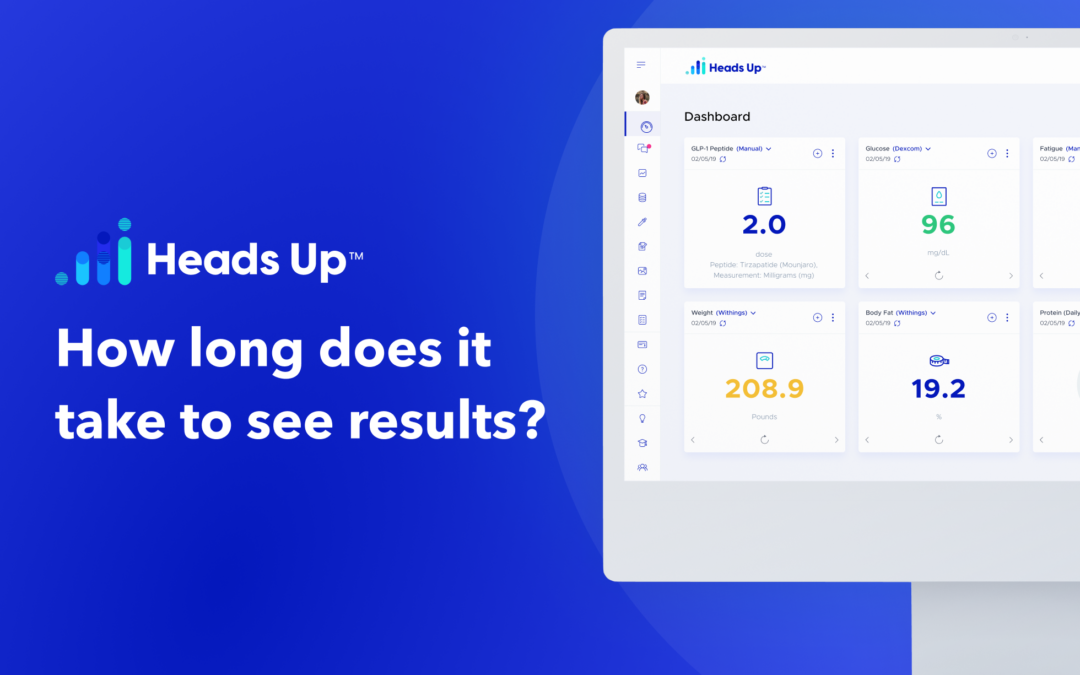
by Heads Up Health | Dec 20, 2023 | Educational
How long it takes to see results with GLP-1 medications will depend on what you are taking it for. If you are using it to lower your blood sugar, it will typically start to work as soon as you reach your therapeutic dose, which will vary based on the individual.
For weight loss, the results can vary and depend on many different factors, including the diet and lifestyle changes you make while on the medication.
GLP-1 Results
When you start a GLP-1 medication for blood sugar control or weight loss your provider will start you on the lowest dose and slowly titrate up every 4-weeks or so. Gradually increasing the dose over a period of weeks lowers the risk of side effects and allows your body to get used to the medication. It is important that you follow the titration schedule to prevent any complications.
The therapeutic dose of semiglutide (Ozempic) for blood sugar control depends on the individual, your healthcare provider will decide the best dose for you. The therapeutic dose of semiglutide (Ozempic/Wegovy) for weight loss is 2.4 mg. However many people begin to lose weight on lower doses.
You may not experience any results until you have been on the medication for 4-8 weeks. Typically, most people start to notice gradual weight loss between weeks 5 and 9, but this can vary depending on the individual.
Once you reach your therapeutic dose, the expected rate of weight loss is 0.5-1% of your body weight per week. This means if you weigh 200 pounds, you can expect to lose 1-2 pounds per week but may lose more if you start at a higher weight. Weight loss will typically slow down the longer you stay on the medication and the closer you are to your goal weight.
Improving Your GLP-1 Results
If you want to optimize your results while taking the medication, the best thing you can do is make changes to your lifestyle and diet to support healthy blood sugar and weight loss. This includes:
- Following a calorie-controlled diet, rich in fruits and vegetables
- Choosing foods high in fiber and protein
- Avoiding sugar-sweetened beverages
- Limiting processed foods
- Limiting or avoiding alcohol
- Exercising at least 30-60 minutes daily
- Getting enough sleep (7-9 hours per night)
- Keeping stress in check
If you have been on the medication for 8 weeks and have not experienced any weight loss or improvements in your blood sugar, speak with your provider who can help you determine the best course of action to see results.
References:
- Pi-Sunyer, X., Astrup, A., Fujioka, K., et al. (2015). A Randomized, Controlled Trial of 3.0 mg of Liraglutide in Weight Management. The New England Journal of Medicine, 373(1), 11–22.
- Wilding, J. P. H., Batterham, R. L., Calanna, S.,et al (2021). Once-Weekly Semaglutide in Adults with Overweight or Obesity. The New England Journal of Medicine, 384(11), 989–1002.
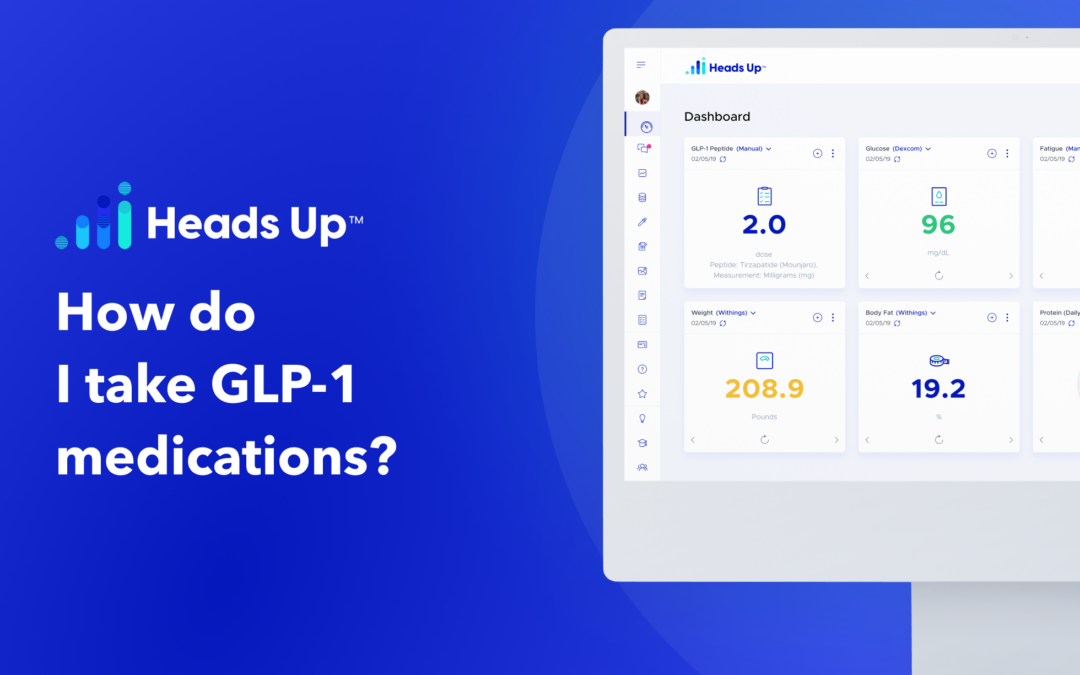
by Heads Up Health | Dec 19, 2023 | Educational, Heads Up HQ
LP-1 medications are typically given by injection once per week. There are some GLP-1 medications that require daily injections. There is a new version of semiglutide called Rybelsus that is taken as a daily pill but is currently only approved for diabetes management.
GLP-1 Injections
Depending on your provider, GLP-1 medications come in an injectable pen that you will give yourself at home or that will be injected once weekly in your doctor’s office.
If you are giving yourself the injections, start by reading any instructions provided for how to use the medication. Store the medication in the refrigerator if directed to do so.
Pick a convenient day of the week to give yourself the injection, as it has to be taken once a week on the same day. The medication can be injected at any time of the day and does not need to be taken with food.
When you are ready to take your medication, always start by washing your hands. Inject the medication into the fat layer under the skin in the stomach, outer thigh, hips, upper buttocks, or the backs of the arm. Some manufacturers recommend injecting the medication into a different area of the body each week.
Be sure to dispose of the pens or needles safely. Follow your community guidelines for the proper disposal of sharps, as requirements can vary based on where you live.
Side effects
Monitor yourself for any side effects after the injection. You can expect some redness or bruising at the injection site. You may experience mild digestive side effects such as nausea, diarrhea, or constipation. You may also experience some dizziness, increased heart rate, or headaches.
If you have any signs of an allergic reaction, get immediate medical attention and stop taking the medication right away. Speak to your doctor if you have concerns about side effects.
Stopping the medication
While the medication can be stopped without any specific side effects, GLP-1 medications are meant to be used long-term. Both obesity and diabetes are considered chronic conditions that need to be managed. If you stop taking the medication, the blood sugar-lowering effects will go away.
You may or may not regain the weight lost if you stop taking the medication, depending on your lifestyle habits. A 2022 study found that most people regained about ⅔ of the weight they lost within a year after stopping the medication. Speak to your doctor if you want to stop the medication, as they can discuss your options with you.
References:
- Filippatos, T. D., Panagiotopoulou, T. V., & Elisaf, M. S. (2014). Adverse Effects of GLP-1 Receptor Agonists. The Review of Diabetic Studies: RDS, 11(3-4), 202–230.
- Wilding, J. P. H., Batterham, R. L., Davies, M., et al. (2022). Weight regain and cardiometabolic effects after withdrawal of semaglutide: The STEP 1 trial extension. Diabetes, Obesity & Metabolism, 24(8), 1553–1564.
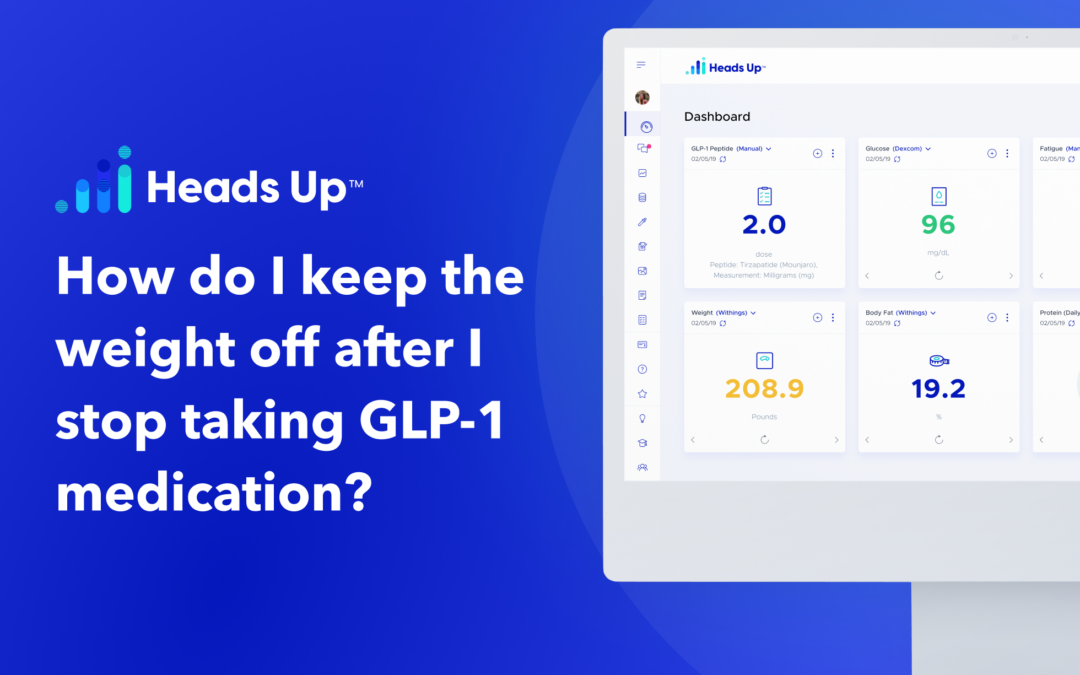
by Heads Up Health | Dec 19, 2023 | Educational, Heads Up HQ
Obesity is a chronic health condition that requires ongoing management. For most people who struggle with obesity, weight management will always be a concern.
GLP-1 medications are meant to be used long-term for obesity. However, some people want to stop taking the medication once they have achieved their goals or have to stop the medication due to insurance reasons.
Before you stop taking a GLP-1 medication speak to your healthcare provider about the best way to transition off the medication so you don’t end up gaining the weight back.
Tips for Maintaining Weight Loss
If you decide you want to transition off of your GLP-1 medication and want to prevent weight regain, it is essential to maintain a healthy lifestyle. Many people quickly go back to old habits after losing weight, which means the weight will quickly come back on.
To maintain your weight loss, there are a few steps you can take. These include:
- Continue to follow a calorie-controlled diet. Weight loss can slow down your metabolism. This means that even if you reach your goal weight, you may need to continue to eat less than a person who was never overweight. This means following a calorie-controlled diet long term.
- Reduce carbohydrates and increase protein. A 2016 study found that lower carbohydrate, high protein diets help increase satiety, helping you keep calories under control more easily. A moderate carbohydrate diet of less than 150 grams of carbs per day, also helps control blood sugar.
- Eat more fiber. In addition to protein, eating high-fiber foods is a great way to control calorie intake. Humans cannot digest fiber, which means it provides a feeling of fullness without any additional calories. Fruits, vegetables, and whole grains are excellent sources of fiber. Aim for at least 25-35 grams per day.
- Learn to love exercise. Research has found that vigorous physical activity for at least 150 minutes a week helps support weight maintenance.
- Sleep. Lack of sleep has been connected to blood sugar imbalance, increased inflammation, and a craving for sweets.
- Manage stress. Chronic stress also increases blood sugar, inflammation, and a craving for high-carbohydrate foods. When you actively manage stress by exercising, meditation, or doing activities you enjoy, this can help you sleep better and make it easier to choose foods that support your health goals.
Finally, it is important to have realistic expectations about weight loss and weight maintenance. A 2022 study found that most people who stopped taking a GLP-1 medication regained about ⅔ of the weight lost within one year. The study does note that overall those who used the medication kept a greater percentage of the weight off when compared to a placebo group that did not use the medication to lose weight.
Even if you do not keep all the weight off, consider continuing healthy lifestyle habits that can improve your health more than maintaining a specific number on the scale. Work with your healthcare provider or a registered dietitian who can help create a personalized plan for you.
References:
- Jastreboff, A. M., Kotz, C. M., Kahan, S., Kelly, A. S., & Heymsfield, S. B. (2019). Obesity as a Disease: The Obesity Society 2018 Position Statement. Obesity , 27(1), 7–9.
- Hall, K. D., & Kahan, S. (2018). Maintenance of Lost Weight and Long-Term Management of Obesity. The Medical Clinics of North America, 102(1), 183–197.
- Hu, T., Yao, L., Reynolds, K., Niu, T., Li, S., Whelton, P., He, J., & Bazzano, L. (2016). The effects of a low-carbohydrate diet on appetite: A randomized controlled trial. Nutrition, Metabolism, and Cardiovascular Diseases: NMCD, 26(6), 476–488.
- Cox, C. E. (2017). Role of Physical Activity for Weight Loss and Weight Maintenance. Diabetes Spectrum: A Publication of the American Diabetes Association, 30(3), 157–160.
- Lim, Y. C., Hoe, V. C. W., Darus, A., & Bhoo-Pathy, N. (2018). Association between night-shift work, sleep quality and metabolic syndrome. Occupational and Environmental Medicine, 75(10), 716–723.
- Hui, H., Farilla, L., Merkel, P., & Perfetti, R. (2002). The short half-life of glucagon-like peptide-1 in plasma does not reflect its long-lasting beneficial effects. European Journal of Endocrinology / European Federation of Endocrine Societies, 146(6), 863–869.
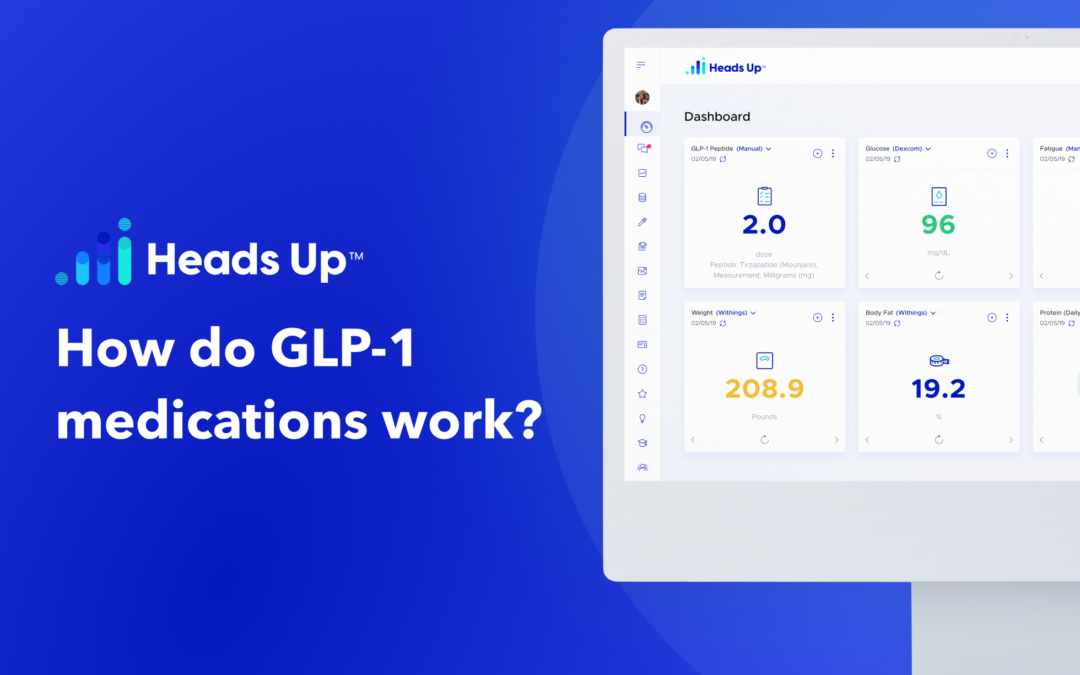
by Heads Up Health | Dec 19, 2023 | Educational, Heads Up HQ
- Notes:
- Aim for 300-500 words.
- Include content on the biochemical effects for those who want some technical info and also bubble it up to layman’s terms for those who need a simpler explanation
Glucagon-like peptide-1 receptor agonists, more commonly known as GLP-1 medications are a class of drugs originally developed in 2005 for the treatment of type 2 diabetes. They are also now used to treat obesity, as weight loss is a side effect of taking these medications.
There are several different types of GLP-1 medications, but Semiglutide (Ozempic®/Wegovy®) or Trizepatide (Mounjaro®) may be the most familiar brand names.
How do GLP-1 medications work?
GLP-1 medications act similarly to a natural hormone called GLP-1. This hormone is made in the small intestine. It plays several important roles in the metabolism of food and the regulation of blood sugar.
In the body, GLP-1 is responsible for:
- Slowing down stomach emptying to control how fast glucose (sugar) enters the bloodstream after a meal
- Impacting areas of the brain that trigger fullness, so you feel satisfied after meals
- Triggering the release of insulin, a hormone that helps lower blood sugar after meals
- Stopping the release of glucagon, a hormone that raises blood sugar
GLP-1 medications act like the natural form of the GLP-1 hormone in the body. The medication binds to receptors that are also triggered by the GLP-1 hormone, resulting in lower blood sugar and an increased feeling of fullness after meals.
GLP-1 and Blood Sugar
GLP-1 medication helps regulate blood sugar after meals due to the effect it has on insulin and glucagon, particularly important for those with type 2 diabetes. Slowing down digestion after a meal also allows your body to process the glucose in your food at a slower pace, preventing spikes in blood sugar.
GLP-1 and Weight Loss
GLP-1 medication promotes weight loss by increasing satiety, or the feeling of fullness after meals, so you eat fewer calories. It also slows down the movement of food through the stomach, so you eat less at your next meal.
Many users report that GLP-1 medications also reduce cravings and “food noise”. It is currently unclear how this medication does this but is likely due to the impact it has on areas of the brain connected to rewards and motivation.
Controlling blood sugar spikes also helps reduce body weight. Dysregulated blood glucose, even if not at diabetic levels, makes weight loss more difficult. The ability of GLP-1 medications to help regulate glucose may be another reason they help with weight loss.
Most GLP-1 medications are currently being used off-label to help treat obesity. But, in June of 2021, the FDA approved Semiglutide (Wegovy®) and Liraglutide (Saxenda®) for weight loss. More of these medications are expected to be approved for weight loss, due to the popularity and effectiveness of these drugs.
References:
- Shaefer, C. F., Jr, Kushner, P., & Aguilar, R. (2015). User’s guide to mechanism of action and clinical use of GLP-1 receptor agonists. Postgraduate Medicine, 127(8), 818–826.
- Müller, T. D., Finan, B., Bloom, S. R., et al. (2019). Glucagon-like peptide 1 (GLP-1). Molecular Metabolism, 30, 72–130.
- Williams, D. L. (2010). Expecting to eat: glucagon-like peptide-1 and the anticipation of meals [Review of Expecting to eat: glucagon-like peptide-1 and the anticipation of meals]. Endocrinology, 151(2), 445–447.
- Blum, D. (2023, June 21). People on Drugs Like Ozempic Say Their “Food Noise” Has Disappeared. The New York Times. https://www.nytimes.com/2023/06/21/well/eat/ozempic-food-noise.html
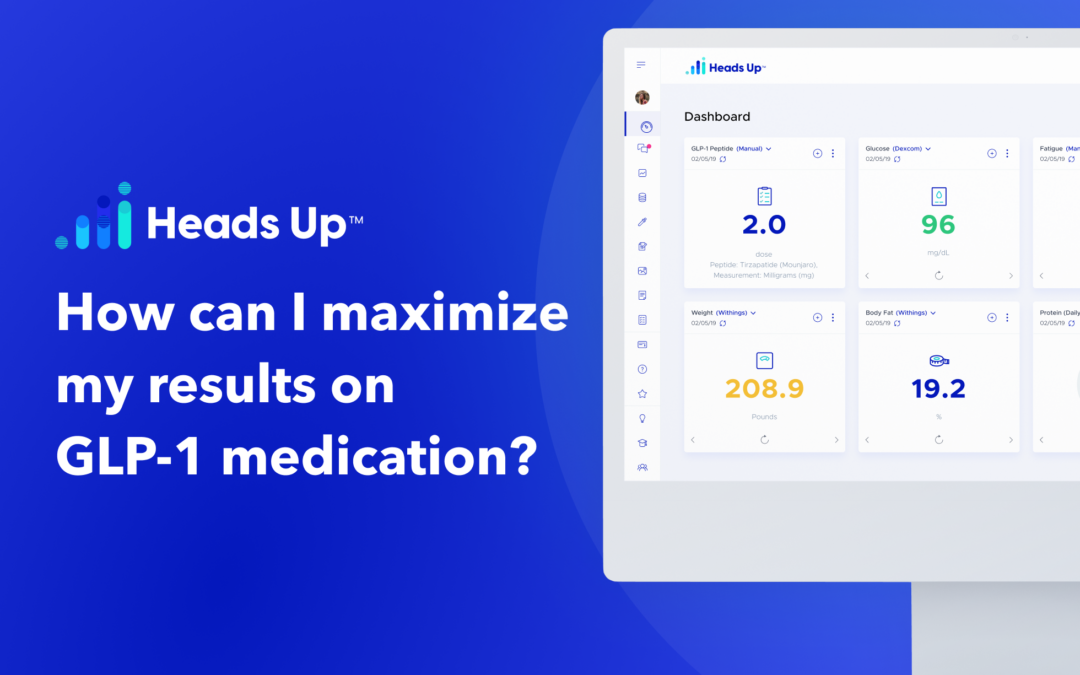
by Heads Up Health | Dec 19, 2023 | Educational, Heads Up HQ
GLP-1 medications are used for both blood sugar management and weight loss. This means you may be looking for different results, depending on why you are taking it.
Maximizing Blood Sugar Control
Like other diabetes medication, the goal of a GLP-1 is to help control your blood sugar. You can track your own blood sugar with a meter at home to determine if you are seeing results. Your doctor may also want to periodically measure your blood sugar, HgbA1C, or other blood markers to evaluate if the medication is working.
The best way to ensure that the GLP-1 medication is working to improve your blood sugar is to follow a diabetic diet and other healthy lifestyle habits. A diabetic diet is a balanced diet that includes lean proteins, vegetables, healthy fats, whole grains, and fruits. Foods that should be limited include sweets, foods high in sodium, sugar-sweetened beverages, and fried foods.
Meals should also be well-balanced to include the right portion of carbohydrates and protein. A registered dietitian can provide guidance on what type of diet to control your blood sugar.
Other ways to optimize the results of your GLP-1 on blood sugar are to exercise regularly, get enough sleep each night, and keep your stress well-managed. GLP-1 medications are just a tool in your diabetes management toolbox, other healthy lifestyle habits still need to be in place to help the medication work.
Maximizing Weight Loss
GLP-1 medications work to induce weight loss by increasing satiety after meals (meaning you get full faster), reducing appetite, and controlling blood sugar. In order to ensure you lose weight at an optimal rate, it is recommended that you follow a healthy, well-balanced diet and exercise regularly.
A diet that is focused on lean protein, fruits, vegetables, and healthy fats will help support weight loss. Limit sweets, sugar-sweetened beverages, and alcohol, to boost your weight loss further. Drink plenty of water, at least 8 glasses per day.
It may be tempting to eat as little as possible to lose weight faster. But this could potentially backfire, as you could lose too much lean muscle making it difficult to keep the weight off long-term. Instead, try to eat at least 3 small meals per day and always start your meal with protein, which supports healthy muscle and metabolism.
Finally, consider a multivitamin while on the medication, since you may not be able to meet all of your nutritional needs due to the smaller portions of food.
References:
- Diabetes Diet, Eating, & Physical Activity. (2023, July 12). National Institute of Diabetes and Digestive and Kidney Diseases; NIDDK – National Institute of Diabetes and Digestive and Kidney Diseases. https://www.niddk.nih.gov/health-information/diabetes/overview/diet-eating-physical-activity
- Shah, M., & Vella, A. (2014). Effects of GLP-1 on appetite and weight. Reviews in Endocrine & Metabolic Disorders, 15(3), 181–187.
- Moon, J., & Koh, G. (2020). Clinical Evidence and Mechanisms of High-Protein Diet-Induced Weight Loss. Journal of Obesity & Metabolic Syndrome, 29(3), 166–173.












